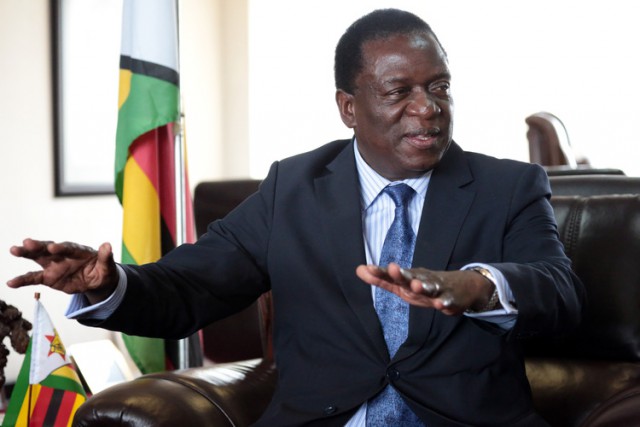By Oliver Kazunga
The government has lifted a ban on chrome ore exports to rejuvenate operations in the sector while promoting economic growth and development, Vice President Emmerson Mnangagwa has said.

Raw chrome exports were suspended in April 2011 to encourage companies to add value.
The move resulted in the closure of some mines due to inadequate smelting capacity.
“As the government, we’ve decided to lift the ban on raw chrome exports so that we promote economic recovery. Chrome is found along the Great Dyke from Zvishavane right up to Mutorashanga, cutting across three or four provinces. Following the ban, the chrome sector had 12 companies that were processing chrome ore into ferrochrome.
“However, not all of them (12 companies) are so viable, some are limping and thus we then decided to lift the ban on raw chrome exports,” said the VP while addressing Zanu-PF supporters at White City Stadium in Bulawayo on Saturday.
He said the government has requested the mining companies to submit their ferrochrome export statistics so as to allow them to continue exporting ferrochrome at current rate while at the same time being allowed to export chrome lumps.
ZimAlloys and Zimasco are some of the country’s large chrome producers.
“As we allow raw chrome exports, we’ve requested the chrome companies to submit to the Ministry of Mines and Mining Development their ferrochrome export statistics in the last three years or so, so that we know the quantity of ferrochrome that was being produced and exported by the individual firms. We’ll then benchmark the statistics to say the figures have to be constant,” added Mnangagwa.
“By doing so, we’ll give them an opportunity to export raw chrome. This entails that the companies in the chrome sector should increase their production levels so that their respective ferrochrome production levels are maintained while at the same time exporting raw chrome.”
As part of economic empowerment, he said, the government agreed to set up a $100 million special purpose vehicle that would buy raw chrome from small-scale producers in the sector.
The $100 million facility was sourced from China for the Ministry of Mines and Mining Development to support small-scale mining operations.
Chrome is a critical resource used in industrial processes such as electroplating, which gives metal certain properties, including abrasion and wear resistance, corrosion protection, lubricity and aesthetic qualities.
Its ore has wealth application for example in refractories and foundries and in metallurgical industry.
Mnangagwa said about 200,000 small-scale miners were found along the Great Dyke adding that these could be put into groups and extract chrome benefiting from the $100 million facility.
“We want the small-scale producers to mine the chrome, which they will sell to the government. Through the $100 million special purpose vehicle the government will have the capacity to buy the raw chrome from small-scale producers at international market rates.
“We know that if they sell to large chrome producers, they’ll be offered unfair prices, which are below the international market rates,” he said.
The VP also said the government would buy from the small-scale producers so that locals benefit from their natural resources.
Through the use-it or lose-it policy, he said, the government would reclaim all the claims that big chrome producers were not utilising and give them for free to small-scale producers.
Mnangagwa said this was meant to promote economic empowerment as well as boosting mineral output.
He said Zimbabwe has one billion tonnes of chrome ore reserves but at the moment has the capacity to move one million tonnes of chrome per year to the export market. The Chronicle






